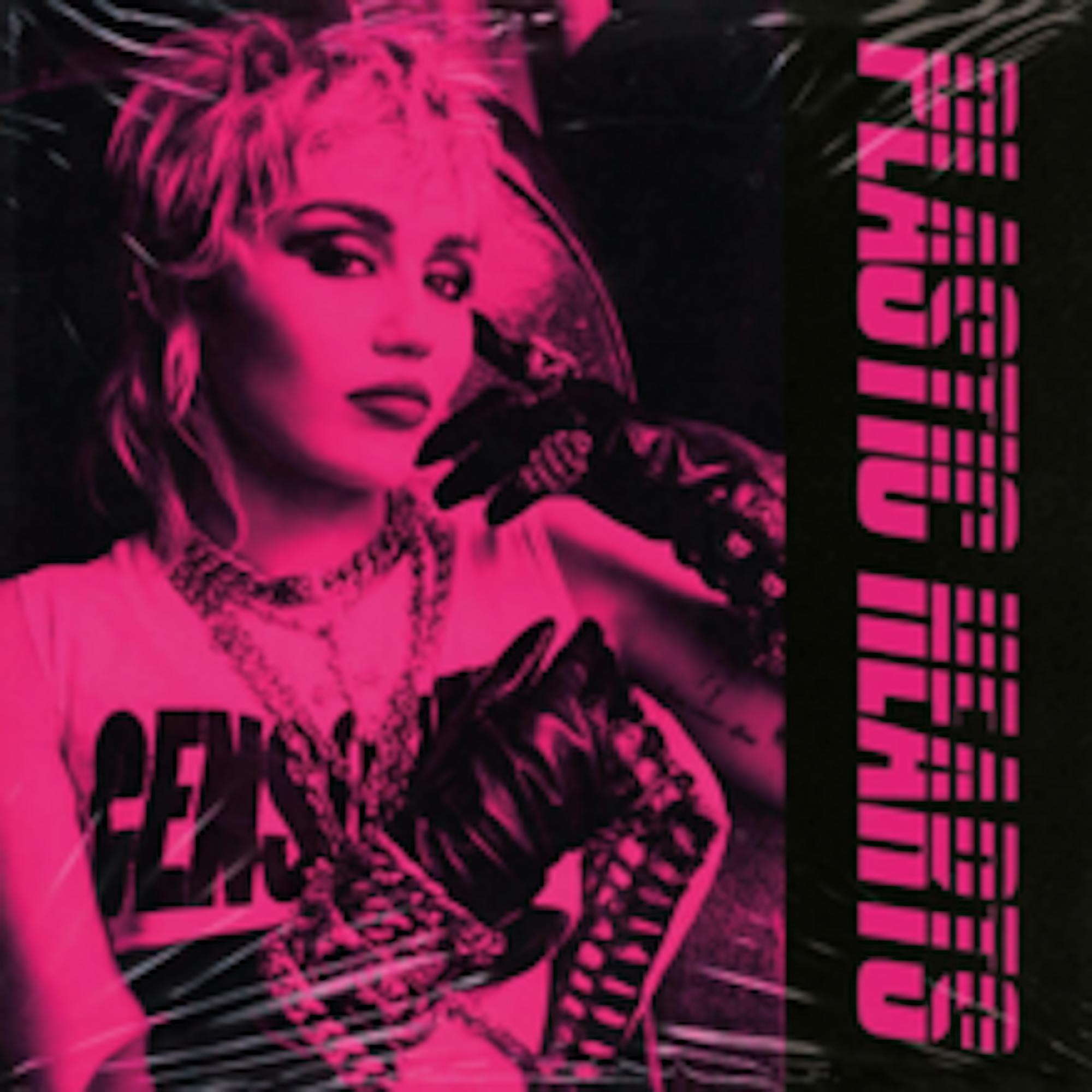“I’m the type to drive a pickup through your mansion / I’m completely naked but I’m makin' it fashion,” Cyrus declaims on “WTF Do I Know,” the 2000s alternative rock-sounding opener of “Plastic Hearts” (2020). It’s an interesting moment for listeners. On the first of 15 tracks, Cyrus immediately defines herself, particularly after her divorce from longtime lover Liam Hemsworth.
With the remainder of the song exploring her life in the wake of newfound independence, “WTF Do I Know” sets the stage for Cyrus’ seventh studio album to explore who she’s been and who she is. But that’s fairly difficult for an artist who’s always changing, especially sonically; it makes “Plastic Hearts” a statement of self-reflection.
For audiences who grew up watching “Hannah Montana” (2006–11), Cyrus’ career feels like whiplash. She’s been a Disney Channel icon, an actress, a short-haired wrecking ball rider and a mellow Malibu minimalist. She’s embraced pop, country, hip-hop, psychedelic rock and electronic pop. Heck, there’s even been a Britney Spears collaboration.
It has earned her praise and scorn — her Video Music Awards twerking with Robin Thicke and widely criticized 2017 comments on hip-hop are burned into our memories. Controversy, it seems, is part and parcel of growing up under the spotlight. But throughout it all, Cyrus has reinvented herself: nNew looks, fun hairstyles and bright colors fill her music videos and performances. She has tried to fit into every box possible, exploring her artistry.
While it feels acceptable to call Cyrus a chameleon — like Stevie Nicks did — or an artist who can simply do everything, we want more. There must be a sound, genre or role that feels comfortable for her. On “Plastic Hearts,” Cyrus finds herself in that sweet spot. She’s embraced a sort of glam-rock, ‘80s pop sound — with a raspy voice and mullet to match. It’s a vibe that feels nicely related to the resurgence of ’80s music we’ve heard in 2020.
That nostalgia reaches a height on the album’s lead single “Midnight Sky,” a swirling statement of sexuality and independence. Catchy and vibrant, the chorus’ lyrics“I was born to run, I don’t belong to anyone” feel akin to a sort of rebirth or recognition. Cyrus accepts who she is — a free rider in the night, doing as she pleases — in a way that is much less abrasive than anything on “Bangerz” (2013) and much more authentic than anything on “Younger Now”(2017).
And that’s not necessarily a controversial opinion; like the rest of us, as Cyrus gets older, her messaging becomes clearer. She was 21 when she released “Bangerz” and had much to prove to the general public outside Disney Channel. Now 28, Cyrus can release “Plastic Hearts” with little to prove.
The album’s lyrics center around relationships and breakups. But the focus isn’t how nothing breaks like the heart — Cyrus already made that song with Mark Ronson in 2018. Rather, it is about how Cyrus defines herself in these situations. "Angels Like You” follows the singer separating herself from a lover, making it clear that the two are completely different. She blames herself: “I brought you down to your knees / ‘Cause they say that misery loves company / It’s not your fault I ruin everything / And it’s not your fault I can’t be what you need.”
It’s a recurring discussion. On “Never Be Me,” Cyrus claims she’ll never be stable or faithful to her lovers. That’s connected to “Bad Karma (feat. Joan Jett)”: the album’s sexy duet with thumping bass and enticing “uh, uh" repetition. Its message is about living a double life: When the moon’s up, sneak out and do bad things. Don’t think twice.
Nighttime fun is a constant on “Plastic Hearts.” The aforementioned “Midnight Sky” comes directly after “Night Crawling (feat. Billy Idol),” the album’s biggest ‘80s pop bop. It has a synth chorus perfect for dancing in nightclubs. Along with “Prisoner (feat. Dua Lipa),” the album feels like it’s ready for dancing, driving through the city and getting up to no good. Add on extra tracks like “Edge of Midnight (Midnight Sky Remix) (feat. Stevie Nicks)” and Cyrus’ live cover of “Zombie” and you’ve got a party.
We could speculate what all this nighttime freedom and these double lives means for Cyrus. And we might joke that the “Hannah Montana” star has always existed between the realms of two identities. But it’s more fruitful to acknowledge the acceptance of duality on “Plastic Hearts.” Rather than keeping her gallivanting and pleasure to herself, Cyrus airs out her mistakes and grievances. She is proud of herself, no matter what others think (see “Golden G String,” a song with the important lyrics,“There are layers to this body / Primal sex and primal shame / They told me I should cover it / So I went the other way”).
All of this is especially fulfilling, given her newfound glam-rock persona. It is similar to what we’ve seen before: colorful, glittery, loud, vibrant and risqué. But whereas “Bangerz” was a calculated public image reset, “Plastic Hearts” doesn’t seem interested in what the public thinks. It’s comfortable with itself. Cyrus seems happier, too. The performances are stronger, her voice is perfectly low and raspy and her looks are ripped right from the world’s most famous rock bands.
This makes “Plastic Hearts” feel like it’s bookending two chapters in Cyrus’ career. And let’s hope that the glam-rock persona stays. It fits Cyrus more than any of her previous eras and allows her to be the larger-than-life diva she was always meant to become.






